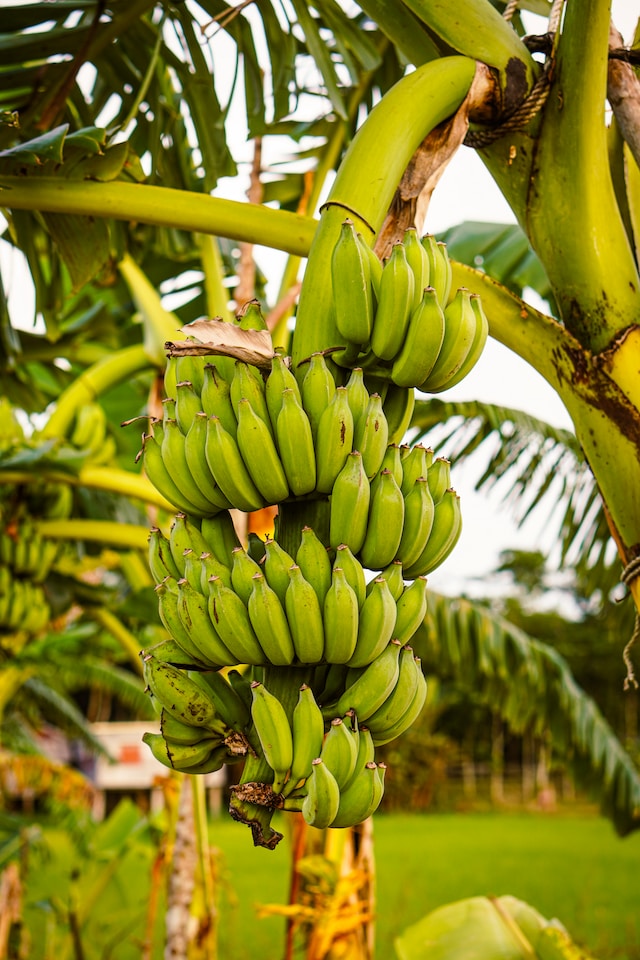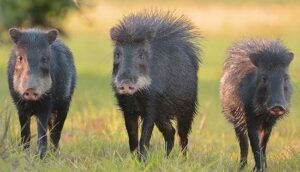Belizean trading laws, both common law and case law, strongly uphold private ownership of property and business enterprises. Foreign investment is actively welcomed; no restrictions are placed on remittances.
Agriculture is an integral component of Belize’s economy, with sugarcane, citrus fruits, and bananas as major export products. Belize enjoys preferential trade agreements as well as fluctuations in world market price fluctuations that make its agricultural industry vulnerable.
Bananas
Belize’s banana industry is one of its key economic sectors, representing approximately $12.9 million worth of exports in 2020 and serving major trading partners like the US, UK, and European Union. Domestic production levels of this fruit also remain high while there exists significant room for expansion within this industry.
Most banana farms can be found within Stann Creek District and Toledo District while initial operations began in the late 1800s under companies such as Manatee Fruit Company of Soldier Creek/Manatee River, British Honduras Fruit Syndicate Mullins River, and Walize Fruit Company Monkey River.
At present, Belizean commercial banana production is dominated by Cavendish variety bananas, accounting for nearly one-third of exports. This variety is popularly known for its creamy texture and sweet, unique taste; however, other varieties exist such as apple bananas (also known as platanos), blogos, and regular bananas with distinct textures, tastes, and uses.
Agriculture makes up approximately one-third of the national GDP and employs around 5,000 people, producing bananas and sugar as staple crops while also supporting livestock and tobacco farming. Unfortunately, climate change makes farming vulnerable; further challenges could include decreased investments by some companies and an increase in black Sigatoka populations.
Citrus Fruits
Belize’s economy relies heavily on citrus fruit production. Citrus exports totalled an estimated $29.5 million in 2020; with key trading partners being the US, UK, and Mexico as primary trading partners for citrus exports from Belize. Production is enhanced by Belize’s ideal climate and fertile soil conditions.
Agriculture accounts for roughly one-fifth of Belize’s total economic output. Sugarcane, bananas, and citrus fruit are the three primary crops grown there and represent significant sources of employment within this sector.
Belize’s economy has expanded beyond timber and commercial logging to other sectors, such as bananas, citrus fruits, sugar, marine products, and marine tourism. Belize remains an open economy with high foreign trade dependency and an expansive primary fiscal deficit; inflation rates have remained low but real wages have stagnated over the past 10 years. Most Belizean citizens reside in rural areas where many live on small farms where traditional shifting cultivation practices on low-nutrient soils exist alongside crops grown for export purposes.
Recent years have seen agricultural production hampered by higher world prices and weather disruptions. To ensure maximum production from their land, government programs have sought to modernize and develop new markets within agriculture while simultaneously reforming national customs departments to increase efficiency.
Belize’s forests provide the foundation of wood products exported internationally, totaling nearly $11.6 million in 2020 alone. Key trading partners for this sector are the US, UK, Canada, and Mexico.
The Belize Bureau of Standards (BBS) serves as Belize’s national standards body, overseeing quality and safety regulations across goods, services, and processes. A member of the World Trade Organization (WTO), it strictly adheres to WTO agreements and reporting systems; its mission is to strengthen Belizean export sector competitiveness, foster economic development, and ensure a prosperous future for its people; this organization operates national inspection services while cooperating with regional bodies such as Central American Integration System.
Seafood
Belize is a small and open economy with a rapidly developing services sector, particularly tourism. Manufacturing industries consist of food products, fertilizers, textiles including apparel and footwear production as well as sugar refining operations at Tower Hill which account for two-thirds of export earnings. At one point during the late 20th century the government focused on import substitution to promote industrial development while its overall development strategy remained export-oriented; these efforts included offering tax breaks to export-oriented firms as well as investing in infrastructure particularly port facilities to support industrial expansion.
Belize’s extensive marine resources hold great promise for the fishing industry, yet the Belizean ocean economy is in its infancy. Belize faces numerous challenges such as investing in marine research, technology, and education; improving the marketing of fisheries products on both domestic and international markets; and adding value to ocean-based economic sectors.
In 2010, the Belizean economy experienced strong growth thanks to higher commodity prices and tourism expansion; however, an unexpected rebound in oil prices negatively impacted economic performance early in 2011. As part of its sustainable development goals, the Government of Belize is working on diversifying its economy while making responsible use of natural resources within Belize’s borders.
As a member of CARIFORUM, Belize benefits from duty and quota-free access to the European Union under its Economic Partnership Agreement (EPA), and signed a Partial Scope Agreement covering certain seafood products with Canada.
Regulated authority exists at both local and national levels with laws issued by cabinet and implemented by ministries. Quasi-governmental organizations like the Belize Tourism Board and BELTRAIDE manage certain regulatory processes on behalf of the government.
Businesses operating in Belize must register with the Registrar of Companies and pay taxes on chargeable income. Foreign investors may set up companies through self-registration if they meet certain requirements; Belize offers an investor-friendly environment, without restrictions or timeframe restrictions on remittances and minimal restrictions for repatriating profits; also, foreign-owned companies do not need a resident director.
Papaya
Belize’s tropical climate and fertile soil make it the ideal location for papaya cultivation. Belizean cuisine showcases an amazing blend of indigenous, African, European, and Asian influences, featuring papaya as one of the mainstays – used as salad ingredients, appetizers, entrees, and even desserts!
Domestic consumption of papaya in Belize used to be high; however, recently its consumption has decreased because local producers are unable to meet rising demand for this product and consequently sell their produce on international markets.
Belizean papaya exports are most frequently sold to Canada and the United States. In 2021, their combined value reached $6.4 million; significantly less than what was sold in 2016 at an impressive $8.5 million total.
Belize’s papaya export market is marked by high levels of fragmentation. A few large and medium-sized companies, including Dole, Brooks Tropicals, HLB Specialties, Agromod, and Calavo Growers dominate its export portfolio, selling various fresh and processed papaya products into international markets.
California and Hawaii are California’s principal markets for papayas in the US market, while most fruit is imported from Mexico with some being produced in Belize as well. Their price reflects supply and demand inversely.
Belize’s average yield of papayas had been decreasing over recent years, but in 2022 this trend reversed; production reached its highest point ever during 2017, but then quickly decreased the following year.
Belize’s open economy and relative currency stability are two primary draws for foreign investment in the country, though some regulatory limitations and bureaucratic obstacles impede creating a productive business environment. Still, due to Belize’s geographical location, developing infrastructure, and rising GDP growth there are numerous investment opportunities in areas like telecoms, agriculture, renewable energy, and tourism among others.




